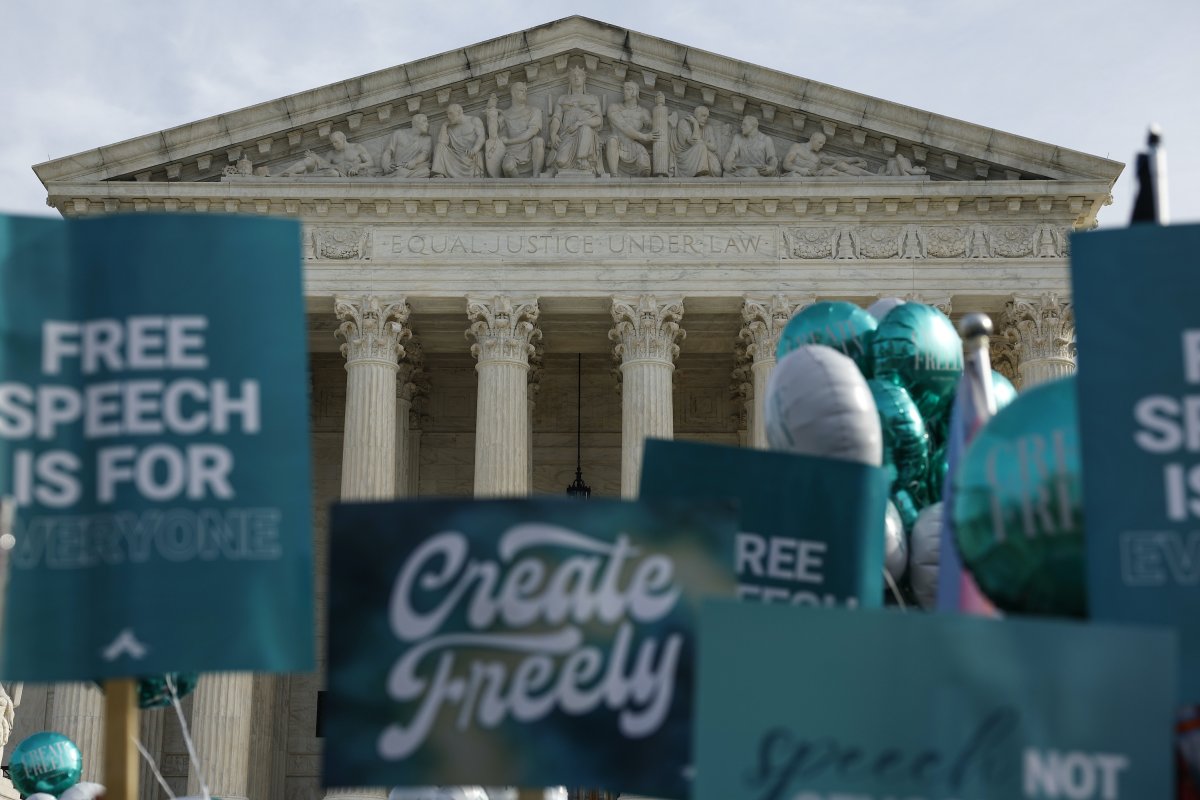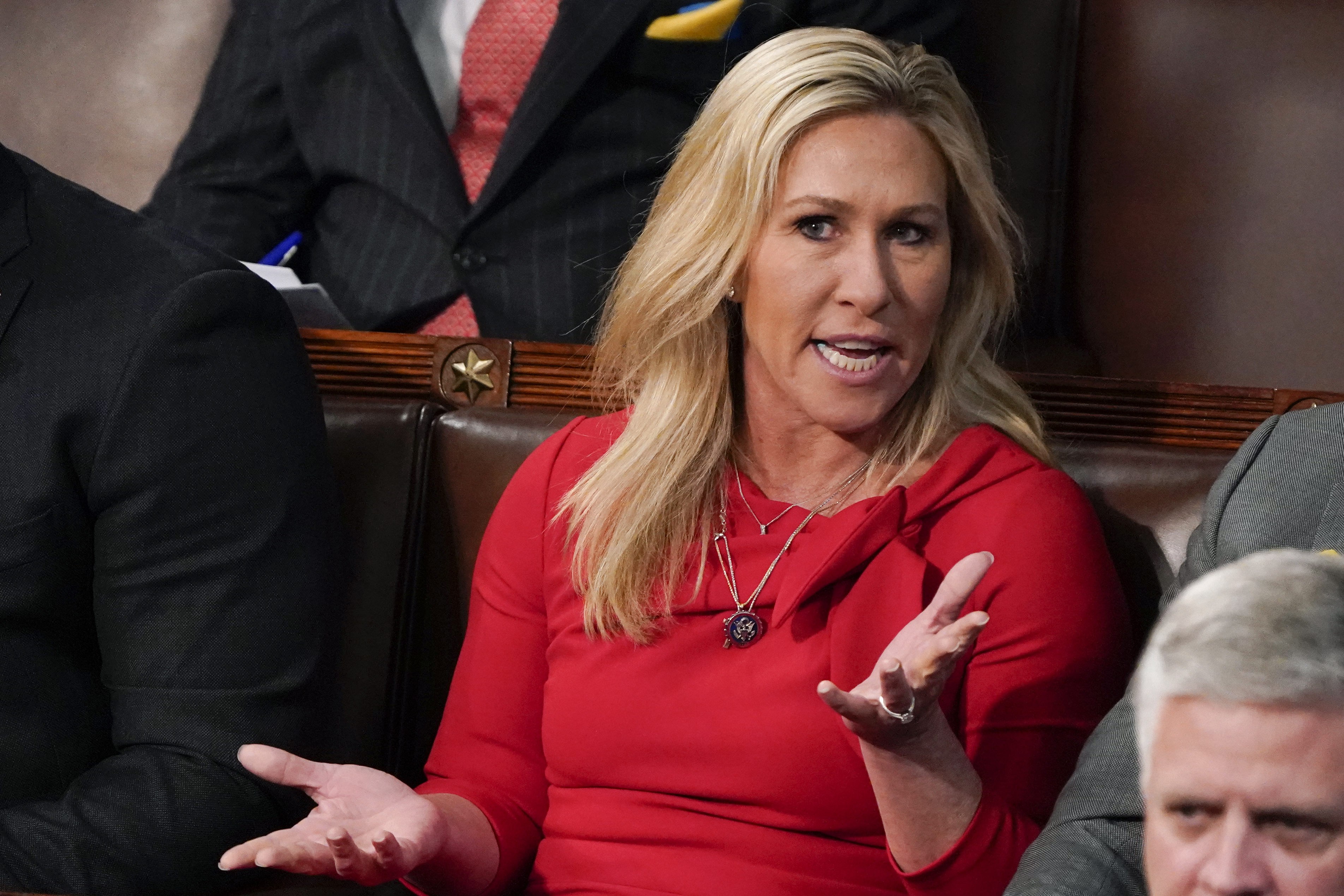Oral arguments at the Supreme Court can often be tedious and technical. But on Monday, the oral arguments in 303 Creative v. Elenis were fascinating. Between the Justices' questions, attorneys' answers, and bizarre hypotheticals, the case reflected two different sides of America fighting over one of the most important First Amendment issues of our day: government-compelled speech over gay marriage and traditional religious beliefs.
The case concerns Lorie Smith, a Colorado web designer who wanted to expand her business—303 Creative, LLC—into creating wedding websites. Colorado law stipulates that she could not decline to create sites celebrating same-sex marriages, which she opposes due to her religious beliefs.
It was clear from the start that the six conservative-leaning Justices, including Chief John Roberts, favored Smith's plea to be able to design unique wedding websites only for opposite-sex unions. The Justices mostly saw her unique website designs as a form of speech and an extension of her religious beliefs, much like Jack Phillips' unique cake designs, and thus in need of First Amendment protection.
Yet it was also immediately clear from the beginning that the three more liberal Justices—Justice Sonia Sotomayor, Justice Elena Kagan, and Justice Ketanji Brown Jackson—were opposed to Smith's mission. Much like the broader American Left, they kept equating traditional beliefs with blatant bigotry.
Using questions and hypotheticals, the more liberal Justices equated Smith's refusal to offer her web design services for same-sex marriages with racism and bigotry, treating it as if it were rooted in disdain and antiquity rather than genuine religious belief.
Justice Sotomayor's beliefs on Smith's case were clear. One question went like this:
How about people who don't believe in interracial marriage or about people who don't believe that disabled people should get married? What's—where's the line? I choose to serve whom I want. If I disagree with their personal characteristics, like race or disability, I can choose not to sell to those people.
In a bizarre hypothetical involving mall photographs with Santa Claus, Justice Jackson pursued a similar train of thought, pressing Kristen Waggoner, the attorney representing 303 Creative, to explain how Smith's refusal to honor a hypothetical same-sex wedding was any different from being blatantly racist.
Now the business will gladly refer families of color to the Santa at the other end of the mall who will take anybody, but—and they will photograph families of color in other scenes—other scenes, so they're not discriminating against the families. What they're saying is Scenes with Santa is preserved for white families and they want to have a sign next to the Santa that says "only white children." Why isn't your argument that they should be able to do that? And maybe it is.

Brown introduced another strange analogy involving It's a Wonderful Life—this analogy too had significant racial overtones that didn't align with the issue at hand at all.
These questions sounded so similar to the way the Left simply equates any conservative's disagreement with gay marriage or even gender identity issues with racism. This equivalence is far from the truth and the two are nothing alike. Every one of these hypotheticals feels like a stretch.
The bizarre statements and hypotheticals continued until the state of Colorado made its case. The more conservative Justices—particularly Justice Samuel Alito and Justice Neil Gorsuch—pushed back, highlighting the other side of the argument. Gorsuch did not even attempt to hide his disdain for Colorado's Anti-Discrimination Law, which forced Smith to resort to litigation in the first place.
In his questions to Colorado Solicitor General Eric Olson, Gorsuch likened Colorado's enforcement of the law to a reeducation program for people with orthodox beliefs. It's this same law that propelled Jack Phillips to the Supreme Court over his cake designs and required him to undergo anti-discrimination training.
JUSTICE GORSUCH: Mr. Phillips did go through a re-education training program pursuant to Colorado law, did he not, Mr. Olson?... It was a re-education program, right?
MR. OLSON: It was not a re-education program.
JUSTICE GORSUCH: What do you call it?
MR. OLSON: It was a process to make sure he was familiar with Colorado law.
JUSTICE GORSUCH: Someone might be excused for calling that a re-education program.
Gorsuch is correct that anti-discrimination laws set in place to ensure equal treatment under the law—a shield, as it were—are now being used by the Left as a weapon to attack people with orthodox religious beliefs.
Waggoner recognized two distinct Americas battling Monday in oral arguments. "Colorado asked this Court for the power to drive views like Ms. Smith's from the public square, views about marriage that this Court has held are honorable and decent, promises that it has provided that the government would not mandate orthodoxy," she said. "This right to be free from government coercion of speech is also foundational to our self-government and to the free and fearless pursuit of truth."
It's not often Supreme Court oral arguments are so reminiscent of the Right and Left's differing approaches to political discourse. This issue is an important one for the Court to resolve. It must do so in a way that honors the authority of the First Amendment and demonstrates that it's not discriminatory to retain orthodox beliefs.
Nicole Russell is a mother of four who has worked in Republican politics. Her writing has appeared in The Atlantic, The Daily Beast, and the Washington Examiner. She is an opinion columnist at the Fort Worth Star-Telegram.
The views expressed in this article are the writer's own.
Uncommon Knowledge
Newsweek is committed to challenging conventional wisdom and finding connections in the search for common ground.
Newsweek is committed to challenging conventional wisdom and finding connections in the search for common ground.
About the writer
To read how Newsweek uses AI as a newsroom tool, Click here.








